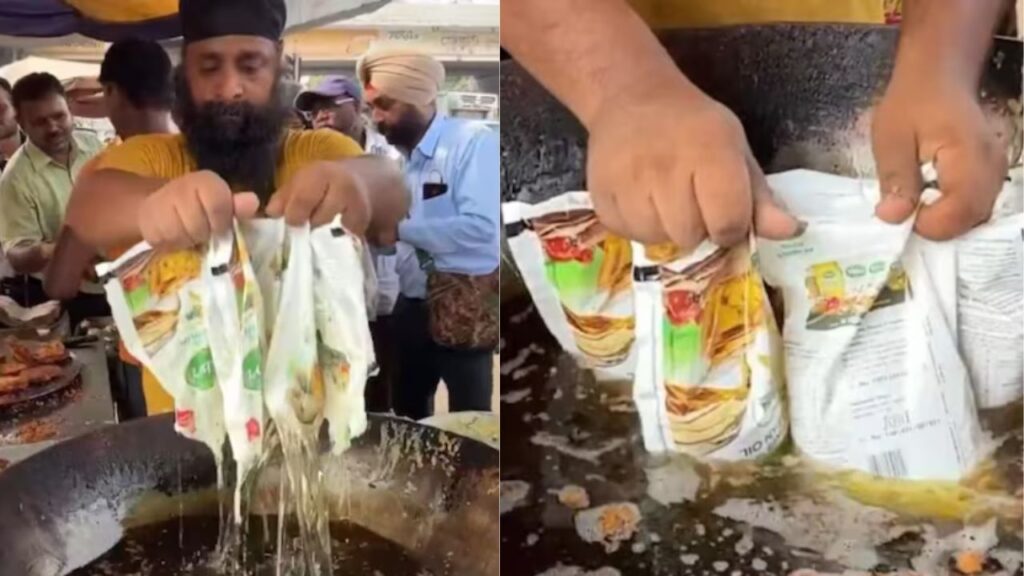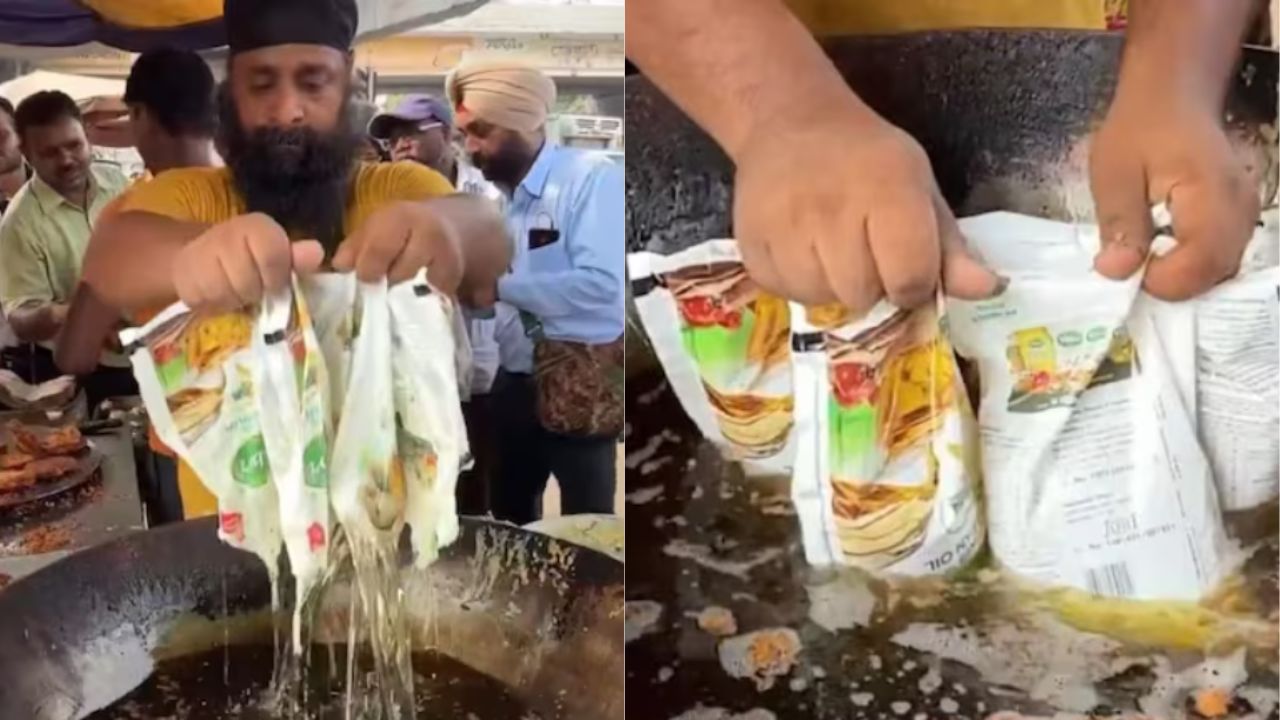A shocking video circulating widely on social media has ignited widespread criticism and concern among citizens and health experts alike. The clip, which shows a street food vendor casually dipping sealed plastic pouches directly into boiling oil to open them, has raised serious questions about food safety, public health, and vendor practices in India’s bustling roadside eateries.
What the Video Shows
In the now-viral video, the vendor is seen preparing a snack at his roadside stall when he reaches for plastic pouches—presumably containing sauces or spice mixes. Rather than opening the pouches with scissors or by hand, he dunks them into the sizzling hot oil used for cooking, causing them to burst open and mix with the food.
The process, while efficient, alarmed viewers for a glaring reason: the hazardous chemicals released when plastic comes in contact with high heat—particularly oil—can contaminate food and pose serious health risks.
Public Outrage and Online Backlash
Once the video surfaced on platforms like X (formerly Twitter), Instagram, and YouTube, users were quick to react. The clip has garnered millions of views and thousands of comments, most of them expressing disgust and alarm.
“This is not street food—this is poison served with a smile,” one user commented.
“Why isn’t there stricter regulation of food vendors?” asked another, tagging local municipal authorities.
The vendor’s identity and location have not been officially confirmed, but some users claim the incident took place in North India, based on dialect and signage visible in the footage.
Health Experts React
Food safety experts and doctors have warned about the toxic impact of heating plastic, particularly the kind used in low-cost food packaging. When subjected to high temperatures, these plastics can leach harmful chemicals like BPA, dioxins, and phthalates, which are linked to:
- Hormonal imbalances
- Fertility issues
- Certain cancers
- Liver and kidney damage
- Developmental problems in children
According to Dr. Nivedita Menon, a food safety consultant, “This practice not only violates basic hygiene norms but introduces direct health risks to unsuspecting customers. The use of plastic in high-heat food preparation should be strictly banned and penalized.”

What the Law Says
The Food Safety and Standards Authority of India (FSSAI) has clear regulations against the use of harmful materials in food preparation. While enforcement remains a challenge, particularly among unregistered street vendors, FSSAI does mandate:
- Use of food-grade materials for packaging
- No recycling of plastic wrappers or containers
- Prohibition of non-food-grade plastic coming in contact with heat or cooked food
Violations of these rules can result in penalties, stall closures, or imprisonment, though actual enforcement is inconsistent across states.
Call for Stricter Oversight
This incident has reignited the debate on quality control in India’s vast street food sector, which remains largely unregulated despite serving millions daily. While street food is a vital part of the country’s culture and economy, unsanitary practices threaten public health on a massive scale.
Public calls are now growing for:
- Mandatory licensing of all vendors
- Periodic training on hygiene and safety
- Random inspections by food safety officers
- Banning the use of non-food-grade plastics in any form
The Bigger Picture
India’s love for street food is undeniable—from spicy chaats to crispy pakoras and sizzling kebabs. However, incidents like these highlight a pressing need to balance tradition with safety.
As food lovers, it’s crucial that consumers also play a role by:
- Supporting vendors who follow hygiene norms
- Reporting unsanitary practices
- Being more aware of what goes into their meals
The viral video of a vendor dipping plastic pouches into hot oil is not just an isolated act of carelessness—it’s a wake-up call. In a country where street food is a daily delight for millions, ensuring safe food practices must become a shared priority between authorities, vendors, and consumers.
As outrage continues to grow online, one can only hope that this incident spurs real action toward safer, cleaner, and healthier street food for all.
